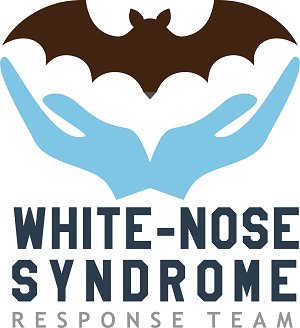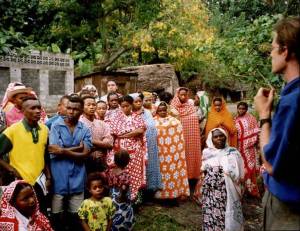Conservation & Outreach in Ecology and Conservation Biology
The Sewall Lab has participated in conservation and outreach efforts in Africa (Madagascar, the Comoros Islands, Benin), and North America. These efforts have focused on a variety of different audiences, and have encompassed participation in conservation networks, outreach to primary and secondary schools, capacity development of early-career scientists and conservation professionals, and community outreach to raise public awareness of science and conservation.
 Conservation of rare and threatened species and ecosystems
Conservation of rare and threatened species and ecosystems
We have engaged extensively in conservation efforts to protect rare and threatened species and ecosystems. Conservation efforts are wide-ranging and have included efforts to protect North American bats from white-nose syndrome, developing conservation plans for fruit bat recovery and tropical forest protection, and managing and reintroducing a rare butterfly species. We often work collaboratively with conservation groups, wildlife and land managers, and conservation networks (such as the U.S. national white-nose syndrome response team) to meet needs for scientific information that can advance ongoing conservation efforts.
Outreach to primary and secondary schools
Our outreach efforts have focused on training teachers in environmental education and techniques for increasing student engagement via inquiry-based education, developing environmental education curricula for primary and secondary schools, and highlighting emerging scientific ideas to encourage early engagement in science among underrepresented groups. Specific outreach efforts by members of the lab have included training via teachers’ workshops (Philadelphia, Benin), development of environmental education lesson plans for inclusion in the national curriculum (Benin), guest lectures in classrooms to highlight emerging and engaging ideas in ecology and conservation biology (Philadelphia), and a popular article targeted at high school students describing conservation biology as a career option.
Capacity development of early-career scientists and conservation professionals
We have thoroughly integrated training of early-career scientists and conservation professionals into our research program. Thus far, 12 undergraduate students from Temple University, 6 undergraduate students from the College of William and Mary, 7 undergraduate students from the University of Antsiranana (Madagascar) have taken part in lab research or internships to advance training in ecology and conservation biology. These students have engaged directly in some of the most pressing questions in ecology and conservation biology, and many of these students have gone on to graduate school and important positions as natural resource managers. In addition, our work in the Comoros Islands and Madagascar has resulted in the intensive training of more than 20 conservation professionals, providing skills and experience needed to advance conservation of critically threatened tropical forest ecosystems.
Community outreach
We have worked intensively to raise awareness of science and conservation issues among the public. This has included the publication of several popular articles, radio and television interviews that translate our research for a wide audience (such as a recent global broadcast on CNN International) and scientific editing of informational resources geared for public use (such as the ARKive online database of threatened species). Our work has also included the training of rural farmers in sustainable techniques for agriculture and agroforestry in Benin, and dozens of meetings in rural communities to engage the public in the development of conservation strategies in the Comoros Islands.


